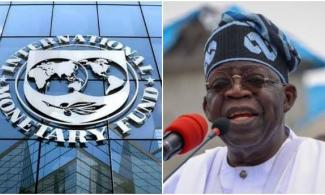
IMF had allocated $58 billion to African countries since the onset of the COVID-19 pandemic and committed to do more.
The International Monetary Fund (IMF) has said that the organisation advised the Nigerian government to remove fuel subsidies to benefit the poor masses living in the country.
Abebe Selassie, the Director of the IMF African Department, presented insights on the organisation's position at the ongoing IMF and World Bank spring meetings in Washington DC.
According to him, the IMF had supplied strong information on how the poor may benefit from the policy in terms of social safety nets.
He said, “Subsidies are about resource allocation internally within Nigeria. So Nigerians, the people of Nigeria pay for these subsidies.
“And what’s the reason why we counsel against such generalised subsidies is very simple. It tends to be highly regressive, meaning the benefits of such you know, fuel subsidies tend to accrue to the rich and segments to reach out to people and the poor people.
“So it’s people that are driving these large cars, with big houses are wanting to see subsidised fuel. They are the ones benefitting relative to the poor and vulnerable in Nigeria.
“So you know, not only people paying for the subsidies Nigeria, it’s the poorest segments of society that actually are losing out and resources could instead, of course, be used to improve conditions for poorer people instead of accruing to rich people.
“That’s why subsidy reform is important. We applaud the government for the steps government took to reduce the extent of subsidies. I think as oil prices have become volatile, the level of subsidy has also moved up and down.
“But I think you know, the direction of travel, I think, to remove the subsidies and use the resources to provide social protection for the most vulnerable households.”
Selassie highlighted that the IMF had allocated $58 billion to African countries since the onset of the COVID-19 pandemic and committed to do more.
Because of the recent rate hike in most economies, the IMF head warned African countries against taking out commercial loans to refinance.
He said that countries south of the Sahara facing debt service issues should look inside for internal resource mobilisation, which would be easier to manage.
The director condemned the practice of providing unfair tax breaks to select corporations while not extending them to others.
The special favours to some companies, he observed reduce the effectiveness of governments to optimise tax revenue.